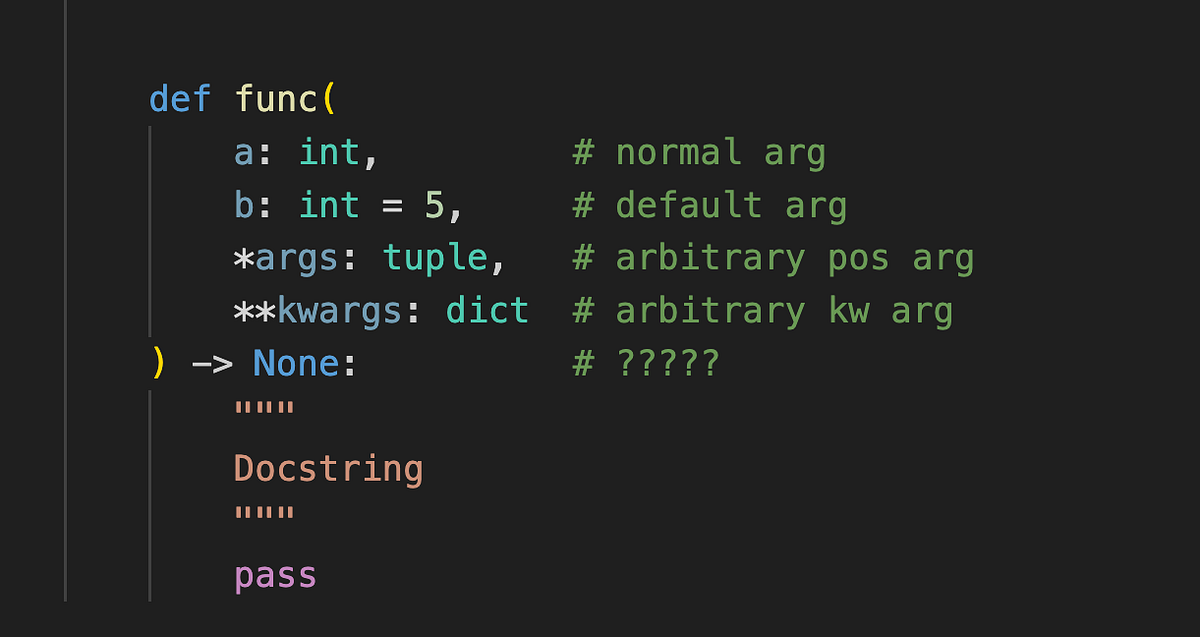Leveraging Type Hints and Docstrings to Enhance Python Function Readability and Maintainability
The content discusses seven Python function-related practices that the author regrets not knowing earlier. The key insights are:
-
Type Hinting in Functions: Using type hints (e.g.,
a: int,b: int,-> float) makes the function's expected input and output types explicit, improving code readability and enabling IDE support for type checking. However, type hints are not enforced, and Python will still allow passing in other data types. -
Docstrings: Adding docstrings to functions provides detailed documentation about the function's purpose, parameters, and return value. This helps other developers (and your future self) understand the function's usage and behavior.
-
Default Arguments: Defining default values for function arguments makes the function more flexible and easier to use, reducing the need to provide all arguments every time the function is called.
-
Keyword Arguments: Using keyword arguments (e.g.,
my_function(a=1, b=2)) makes the function calls more explicit and less prone to errors, especially when the function has multiple parameters. -
Variable Number of Arguments: The
*argsand**kwargssyntax allows functions to accept a variable number of positional and keyword arguments, respectively, making the functions more versatile. -
Unpacking: The unpacking operator (
*) can be used to pass the elements of a list or tuple as individual arguments to a function, simplifying function calls. -
Partial Functions: The
functools.partial()function allows you to create new functions by "freezing" some of the arguments of an existing function, making the function more reusable and composable.
Mukauta tiivistelmää
Kirjoita tekoälyn avulla
Luo viitteet
Käännä lähde
toiselle kielelle
Luo miellekartta
lähdeaineistosta
Siirry lähteeseen
zlliu.medium.com
7 Python Function Things I Regret Not Knowing Earlier
Tärkeimmät oivallukset
by Liu Zuo Lin klo zlliu.medium.com 08-03-2024
https://zlliu.medium.com/7-python-function-things-i-regret-not-knowing-earlier-989b6a89d802
Syvällisempiä Kysymyksiä
